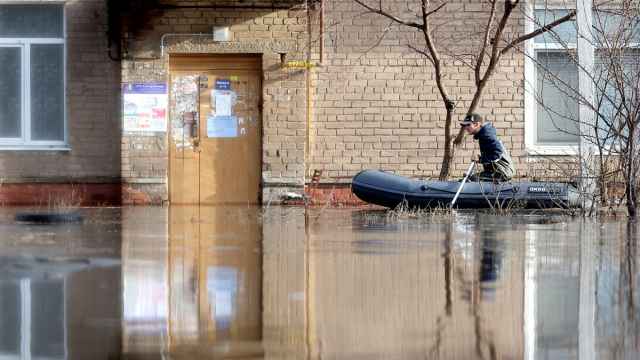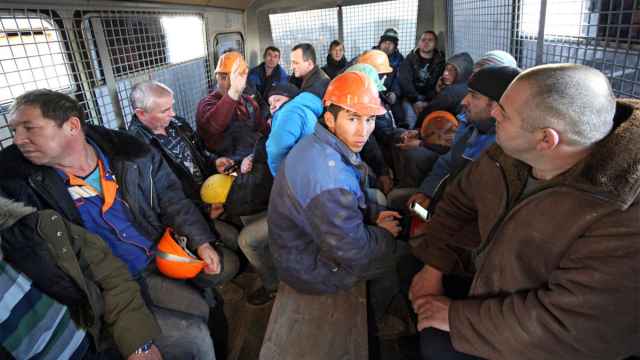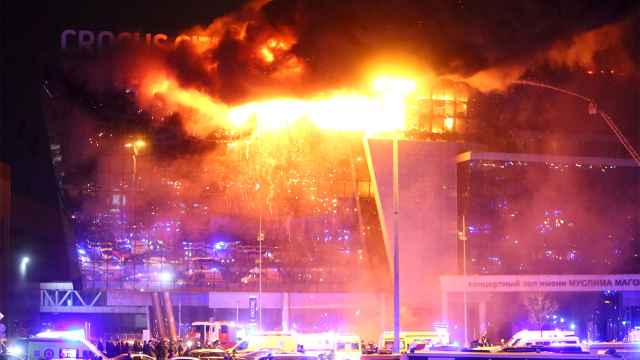Реагент: deicing agent
Ah, Moscow winter! Holiday decorations, Christmas fairs, ice skating on Red Square…ice skating in your courtyard, knee-deep slush, digging your car out of snowbanks, permanently chapped lips…
Even if you like winter — and I do like winter — Moscow’s cold season, which, depending on the year, might extend from September to June, almost always gives you something or someone to complain about. Here is my list of Moscow Winter’s Greatest Hits, Slips, and Falls:
- В Россию внезапно пришла зима: водители в шоке (Winter came suddenly to Russia; drivers are in shock). Every. Single. Year. There is a cold snap, a snowfall, a sharp freeze in, say, early December, and everyone is shocked, absolutely shocked. Cars slide over icy roads because the drivers haven’t yet changed their tires, which is charmingly called “putting different shoes on your car for winter”: переобувать машину на зиму. They slide because the коммунальщики (an all-purpose term for communal service workers) haven’t gotten the plows out. Because the arrival of winter in Moscow in December was totally unexpected.
- The result of the above is гололедица – er, гололёд — er, which is it? I will never get this right, because both words mean “iced over.” But гололёд means anything covered with ice, like гололёд на ветках (the branches are covered with ice), while гололедица refers only to ice-covered or slippery roads. Sometimes I get warnings about it on my phone like this: Ожидается гололёд, гололедица, усиление ветра до 15 м/с (Iced surfaces and roads are expected with winds gusting up to 15 meters a second). They always end with the exhortation: Будьте внимательны и осторожны! (Watch out and be careful!)
- Then begins the annual battle waged by коммунальная служба (communal services): реагенты против льда (deicers vs. ice). Every year there is a different technique. Most years they toss the deicing pellets in a thick blanket over courtyards and sidewalks, which ruins boots, destroys tree roots, and burns animal paws. This in turn entertains Muscovites with the sight of a line of people carrying 40-kilo dogs across the street to the park. This year communal services have eschewed deicers. Instead, a big plow came through the courtyard, burying parked cars. Then the layer of snow remaining on the pavement melted during the day and froze at night. After that another plow came through with a brush that burnished the frozen snow into a smooth, slippery каток (ice rink).
- This sets off frenzied activity on house chat rooms (чат) that involves an excess of capitalization and exclamation marks: КОМУ НАПИСАТЬ?!!!!! (Who should we write?!) КОМУ ЖАЛОВАТЬСЯ?!!!!! (Who should we complain to?)
- After a few winters in Moscow you become a connoisseur of snow. There is сухой снег (dry snow); мокрый снег (wet snow); снег с дождём (snow with rain); дождь со снегом (rain with snow); снегопад (a snowfall); сугроб (snowbank); метель (blizzard); and even снежный апокалипсис (snowpocolypse). Первые новости про грядущий "снежный апокалипсис" появились за два дня до его начала (The first news about the coming “snowpocolypse” appeared two days before it started).
- All of the above can result in a total collapse of services: Снежный коллапс уже с самого утра начал влиять на ситуацию на дорогах, одно за другим происходят ДТП (Starting early in the morning, the havoc caused by the snow began to affect road transportation, and there was one car accident after another).
- Of all the snows, мокрый снег (wet snow) is best if you want to take photographs — огромные снежинки нежно падают (enormous snowflakes gently fall) — лепить снеговики (make snowmen) and играть в снежки (have snowball fights). Сухой снег (dry snow) is best for that priceless scrunch-scrunch-scrunch sound your boots make on clean, packed-down snow.
- But in every winter there are перепады (ups and downs). One day it’s -20C, the next day the temperature climbs to -4C, and — Ужас! (Horrors!) — the day after that it’s +2C. The ice rink in your courtyard that you hated now turns into an icy-muddy-slushy-chemical pond that you hate even more. More frenzy on social platforms: ХОДИТЬ НЕВОЗМОЖНО!!!! (It’s impossible to walk!) КОМУ НАПИСАТЬ?!!!! (Who should we write?)
- That snowy-slushy-filthy pond has lots of names in Russian, all of which have a nice onomatopoetic vibe: слякоть (slush on the ground, sleet coming down from the heavens); жидкая грязь (soppy mud); жижа (slurry); месиво (glop, sludge, mush); and каша (literally porridge, figuratively what expats call cake mix).
- And then, eventually, comes оттепель (thaw). The pond of slush begins to dry out: Мы увидели асфальт ― грязная жижа, в вонючем месиве лежат железные банки, ржавые колёса, гнилые ботинки и собачьи какашки (We could see the pavement covered with filthy slush, and in that stinking mush were tin cans, rusted tires, rotten boots and dog crap). Of course, it’s usually not that bad, but in any case, I do not advise looking behind the garbage bins.
At some point in all of the above, you begin to wonder why you are living here. Isn’t there a nice place closer to the equator where there are a lot of Russian-speaking people? (Answer: Yes. Thailand and Egypt.)
But then, one evening, there is a gentle snowfall, with snowflakes dancing in the beams of the streetlights, and all the sounds of the city muted and distant… and you think: how could I ever leave? Как я люблю московскую зиму!






